The benefits of chess
Press release by FIDE and the FFE
The “Chess for Mental Health” international event, a joint effort of FIDE and the French Chess Federation (Fédération Française des Échecs or FFE) with the support of Imagine Institute, Teladoc Health and AESIO Mutuelle, was held on 9 March 2022, in Paris.
Eloi Relange, the President of FFE, said:
Among its many assets, the game of chess brings many benefits in the service of mental health. Achievements and projects are multiplying at the international level. The French Chess Federation is proud to host this international conference organized by our Health Social Disability Commission and our International Commission.
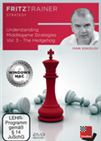 Throughout my playing career I have found the Hedgehog one of the most difficult type of positions to master. The basic aim of this video is to improve understanding of these complex positions and to help tournament players score better.
Throughout my playing career I have found the Hedgehog one of the most difficult type of positions to master. The basic aim of this video is to improve understanding of these complex positions and to help tournament players score better.Franck Droin, President of the Health Social Disability Commission of the FFE, added:
We have set up Health Social Disability Commission of FFE to pilot a set of programs dedicated to issues related to health, well-being and social inclusion through the game of chess. The Infinite Chess Program is the first of a set of measures focused on research and mental health in order to make chess a new tool at the service of health professionals and citizens.
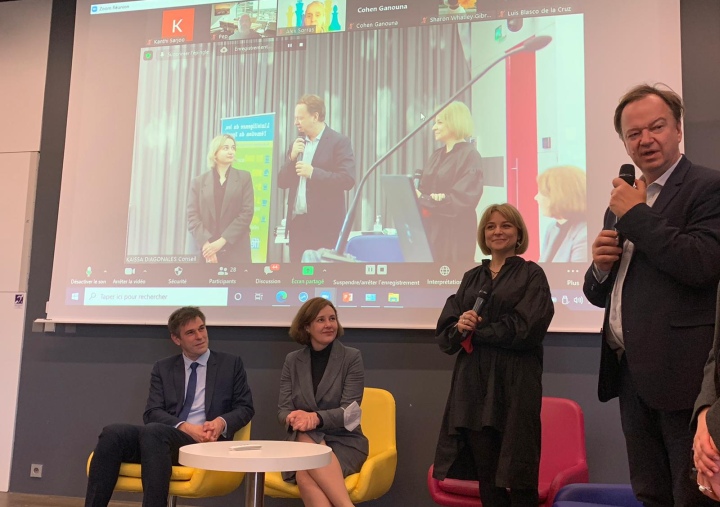
The list of other key participants of the conference included Ministry of Health and Solidarity Franck Belivier, FIDE Managing Director Dana Reizniece-Ozola, Prime Minister Services Interministerial Delegate Autism and Neurodevelopmental Disorders Claire Compagnon, World Health Organization Director, Mental Health and Substance Use, WHO Devora Kestel, President of the Psychiatric French Society and President of CNQSP FFE “Health Social Handicap” Maurice Bensoussan, and others.
FIDE Managing Director Dana Reizniece-Ozola noted:
Professional sport is not the only mission of FIDE. Chess and sports, in general, have to be used for other goals as well to make society stronger. Chess is an excellent tool for doing that, and we are trying to use these opportunities. Especially lately, we have developed various social initiatives where chess is used not for the sake of teaching the game itself but for the sake of social cohesion, increasing mental skills, girls empowerment and other things. Last year we also adapted our social responsibility guidelines, which goes very well with those principles that have been already encoded in our charter and policies.
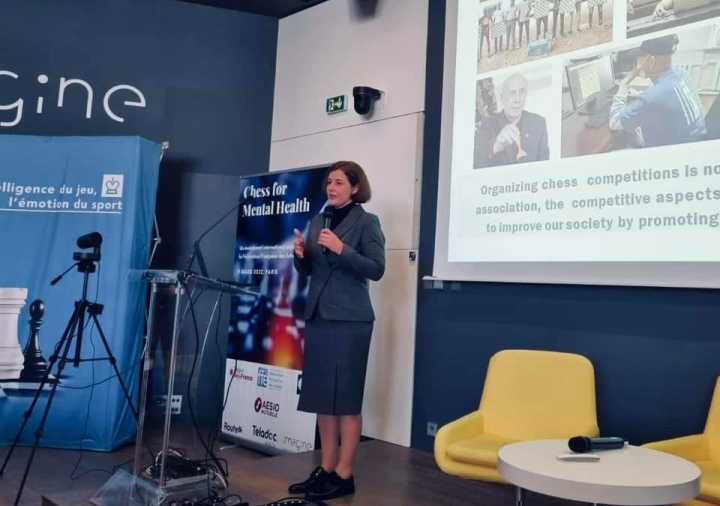
Introducing chess to children with Autistic Spectrum Disorder is one of the key social initiatives of FIDE. The Infinite Chess Project aims to enhance knowledge and awareness about chess for children with ASD, give practical advice for teachers and parents, study the benefits of introducing chess and develop teaching methods.
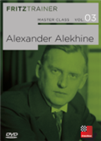 On this DVD GMs Rogozenco, Marin, Müller, and IM Reeh present outstanding games, stunning combinations and exemplary endgames by Alekhine. And they invite you to improve your knowledge with the help of video lectures, annotated games and interactive tests
On this DVD GMs Rogozenco, Marin, Müller, and IM Reeh present outstanding games, stunning combinations and exemplary endgames by Alekhine. And they invite you to improve your knowledge with the help of video lectures, annotated games and interactive testsIn the second part of the conference, Anastasia Sorokina, FIDE Vice President and leader of the Infinite Chess project, opened the discussion on chess for children with Autistic Spectrum Disorder, which was followed by presentations made by specialists from different countries, who shared their practical experiences in teaching chess to children with ASD.
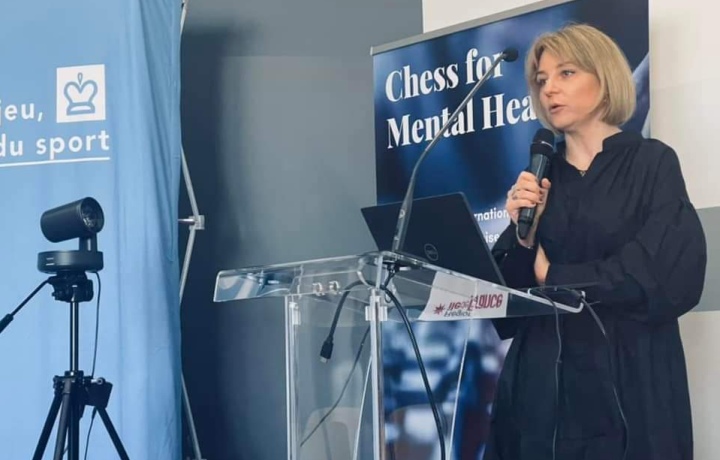
Speakers, including Natalia Popova, curricula author, leader of the two-year-long project teaching chess to children with ASD, Ala Mishchanka, special needs educational assistant with more than 15 years of experience, Luis Blasco De La Cruz of FIDE’s Commission for Chess in Education, María Rodrigo Yanguas, WFM and a sports psychologist, Erick Takawira, Director of the KZN Chess Academy, and Kanthi Devi Sarjoo, speech/language pathologist/audiologist from the Browns' School, Emmanuel Nieman, Chess Trainer, Eric Desailly of Foundation Ellen Poidatz, François Lescure, President of Teladoc Health France, and Sophie Krief, CEO of AESIO Mutuelle, covered various topics related to mental health, including autism, DYS, concentration, hyperactivity. The results of their studies showed that chess could improve multiple aspects of mental health.
According to the speakers, many recent studies have already highlighted the benefits of playing chess to support the development of children with autism spectrum disorders, the DYS (dyslexia, dyspraxia, dyscalculia) or attention and hyperactivity disorders. But these results must be confirmed by new studies, more extensive and more followed over time.
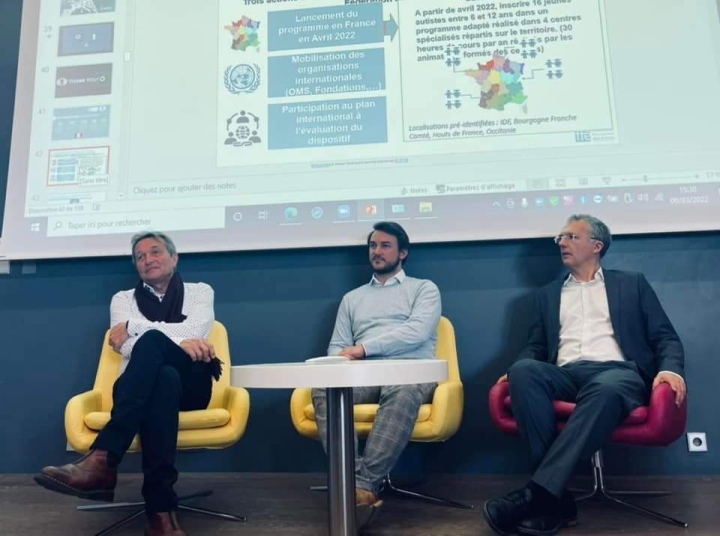
Kanthi Devi Sarjoo, Browns’ School Speech-Language Pathologist/Audiologist, said:
Observational data compiled indicated that chess is a viable medium to improve children's social skills with an autistic spectrum disorder. The use of role-playing in the chess lessons elicited emotive language and developed their creativity and imagination.
Finally, Aurélie Renard-Vignelles, Edith Jebob Duvernet, Maxence Augier, and Dr Maurice Bensoussan discussed troubles of DYS, concentration, and hyperactivity.
Presentations are available for download (pdf):
- Chess and Mental Health - Dana Reizniece-Ozola Presentation
- Chess and Mental Health - Infinite Autism Anastasia Sorokina
- Chess and Mental Health - South African experience
- Chess and Mental Health - Autism French Project
- Chess and Health - Spanish Experience by Maria Rodrigo Yangas
- Chess and mental Health - ADHD and DYS French Projects
- Chess and Mental Health - Luis Blasco de la Cruz



























